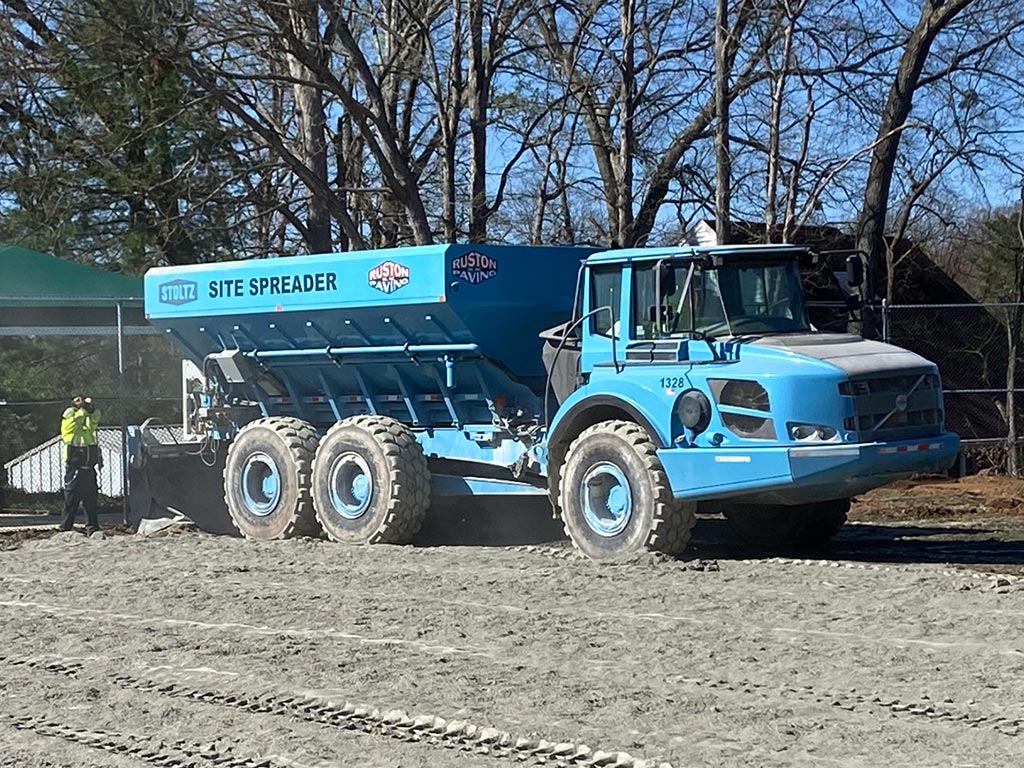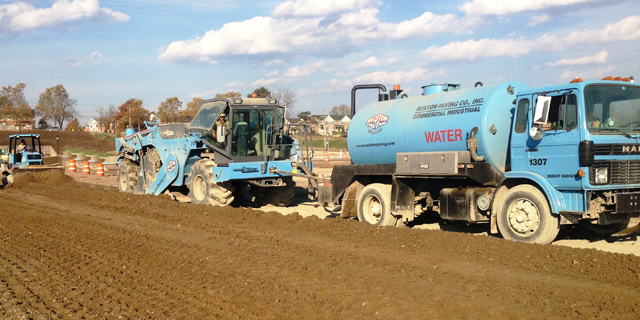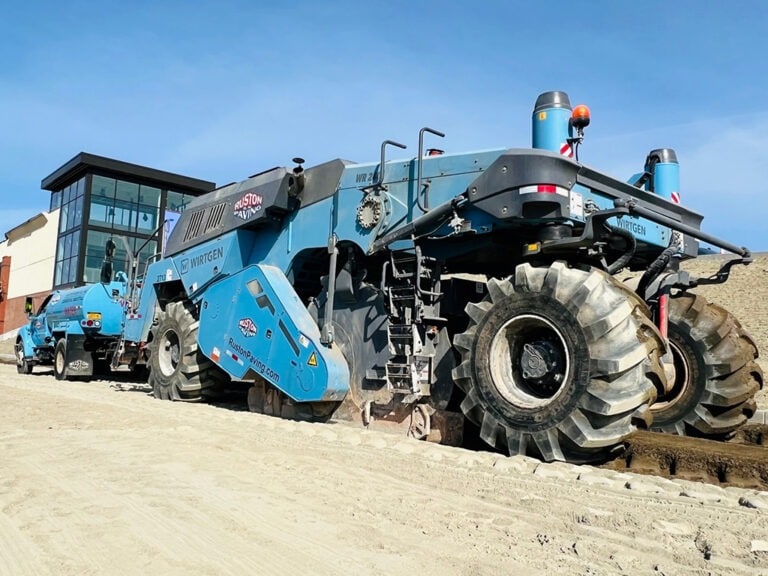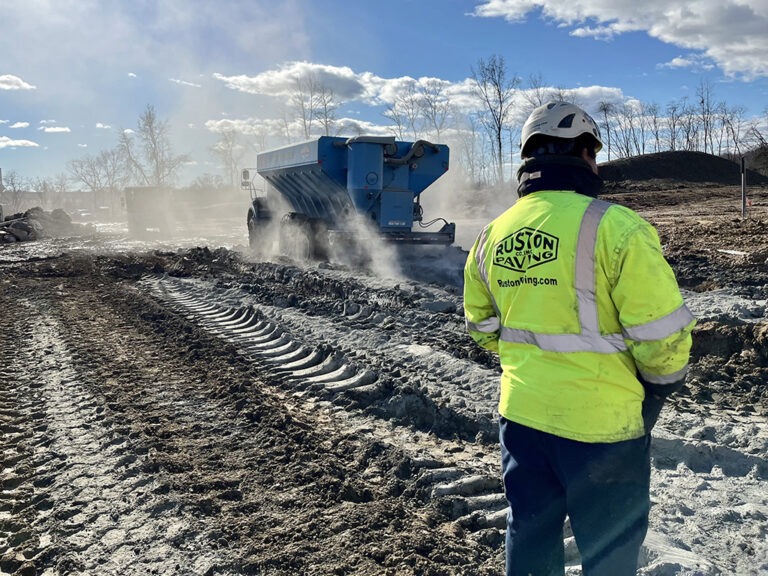We can stabilize saturated construction sites for a drier, safer working environment.
Construction projects are often subject to delays due to wet soil conditions, which can severely impact the stability and workability of the site. To mitigate these challenges, contractors frequently use a process known as job site drying, where an additive, such as Portland cement or lime, is added to wet soil to stabilize it. This method expedites the drying process and enhances the soil's structural integrity, making it suitable for construction activities.
A Definition of Job Site Drying
"On-site soils are amended to achieve the desired physical properties to build long-lasting, economical structures that have a low environmental impact over their lifespan."
-Portland Cement Association, Soil Stabilization Experts
Why Job Site Drying is Essential
Wet soil on a construction site can lead to significant delays, increased costs, and compromised structural stability. Over-saturated soils are difficult to compact, which is essential for creating a solid foundation.
If the soil is not adequately stabilized, it can lead to issues such as shrinkage, swelling, and eventual structural failure.
The use of a drying agent in subgrade stabilization helps achieve the required soil moisture content, improves compaction, and ultimately, strengthens the foundation. This process is particularly useful in regions with high rainfall or unsuitable soils, ensuring that construction projects stay on schedule and within budget.
Job Site Drying
Drying Soils With An Additive
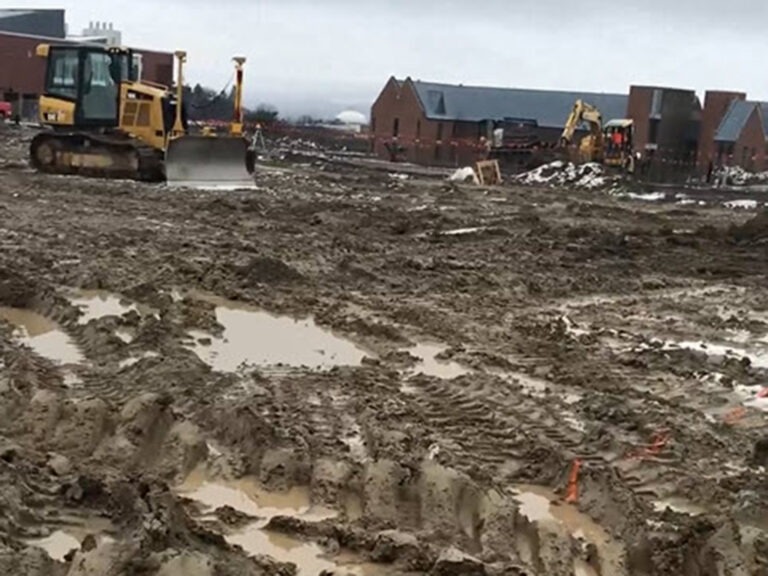
Soil Assessment
Before beginning the stabilization process, a thorough assessment of the soil is conducted. This includes testing for moisture content, particle size distribution, and plasticity. The goal is to determine the optimal amount of additive needed for effective stabilization.
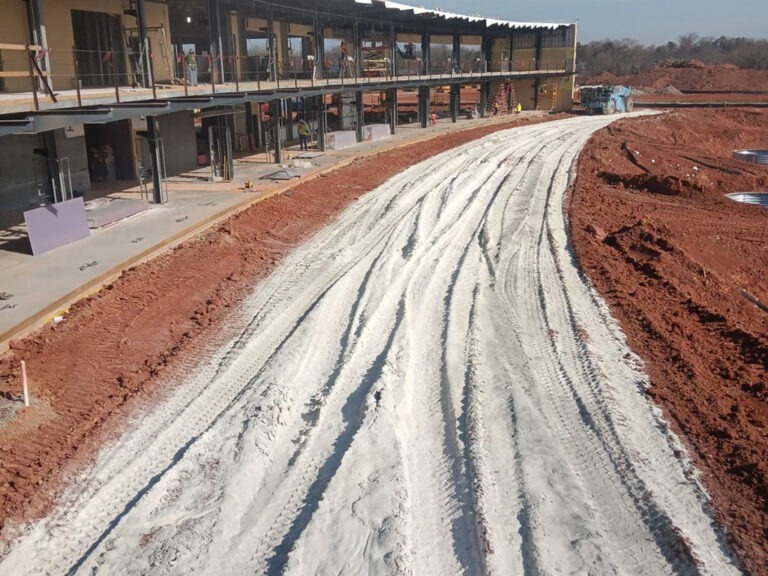
Application of Drying Agent
A drying agent is applied at a pre-determined rate, usually between 3% to 6% by weight of the soil. It is then mixed thoroughly with the wet soil using specialized equipment to ensure a homogeneous mixture.
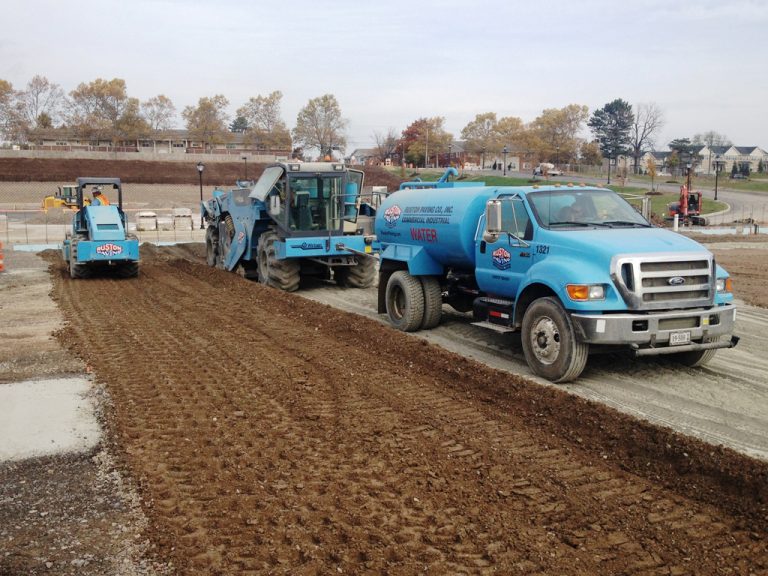
Hydration and Compaction
After the drying agent is mixed into the soil, depending on the existing moisture content, water can be added to initiate the hydration process. This chemical reaction generates heat, which helps to dry out the soil while also binding the soil particles together. The soil is then compacted to the desired density, ensuring a stable and solid base.
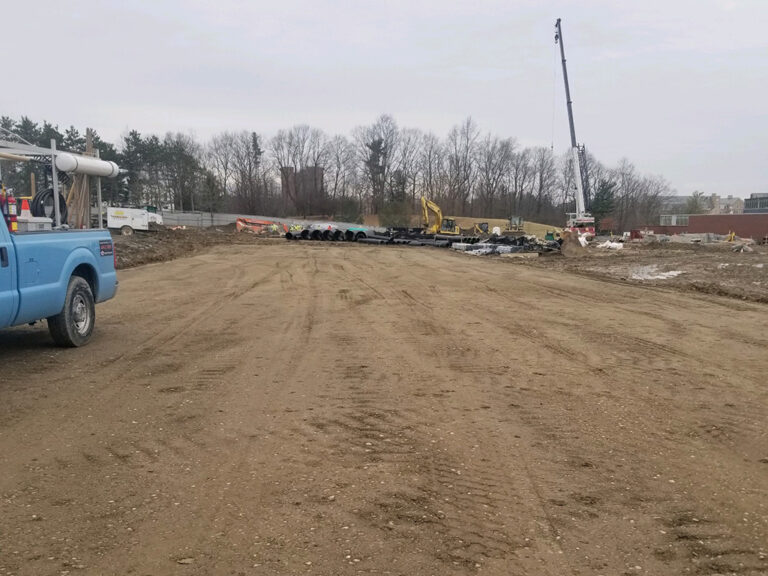
Final Curing
The treated soil is allowed to cure, during which time it gains strength and further stabilizes. This curing period can vary depending on the weather conditions and the type of soil but typically lasts several days.
Advantages of Using Soil Additives for Subgrade Stabilization
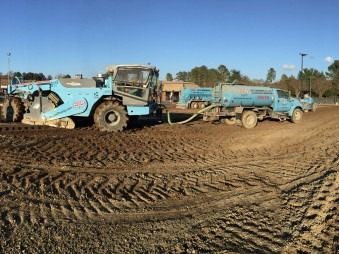
Enhanced Soil Strength
Soil additives chemically modify the unsuitable material, increasing its load-bearing capacity and reducing its plasticity.
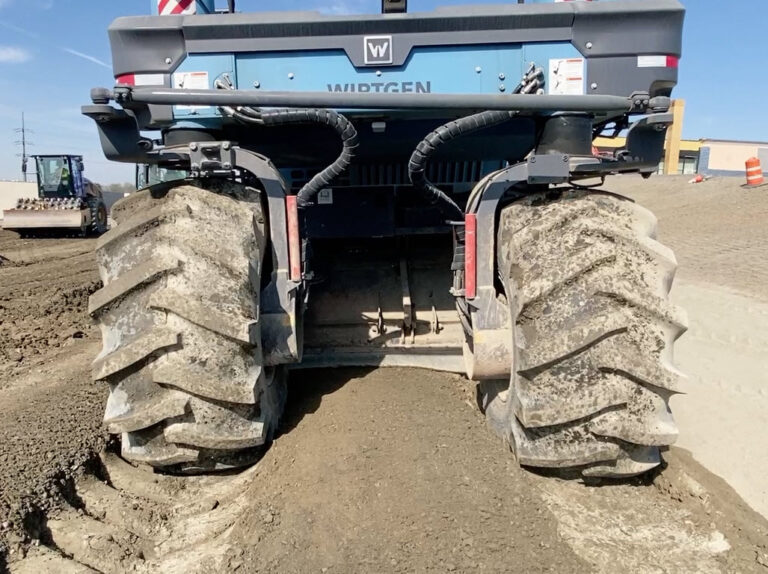
Time Efficiency
The exothermic reaction during hydration speeds up the drying process, allowing construction to resume more quickly.
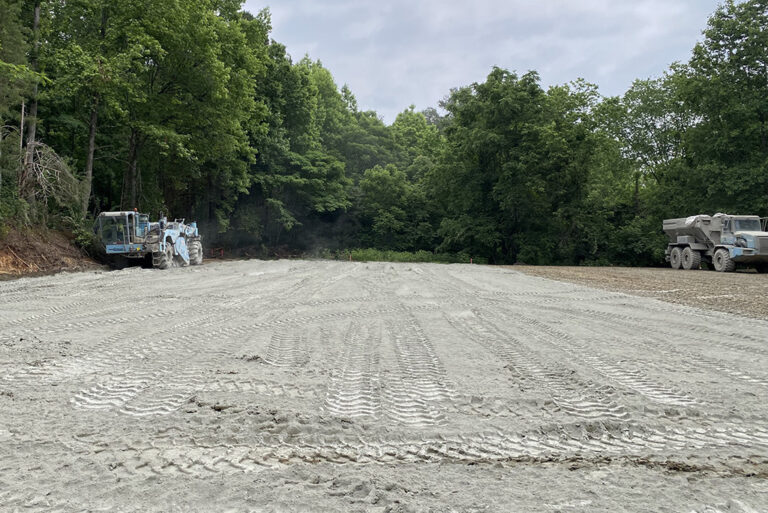
Cost-Effectiveness
Using a soil additive is often more economical than alternative methods, such as soil replacement, especially for large projects.
Construction Site Drying FAQ
1. What is job site drying?
Job site drying is a process used to stabilize wet soils on construction sites. This method involves adding a drying agent, such as Portland cement, to the wet soil that helps reduce moisture content, improve soil compaction, and create a stable base for construction activities.
2. Why is job site drying necessary?
Job site drying is crucial because wet soils can cause significant delays and complications in construction projects. Wet soil is difficult to compact, leading to unstable foundations that can compromise the structural integrity of a building. By using an agent like Portland cement to dry and stabilize the soil, contractors can ensure a solid and stable base, keeping the project on schedule and within budget.
3. How does Portland cement help in soil drying?
Portland cement helps in soil drying through a chemical reaction known as hydration. When mixed with water, the cement undergoes an exothermic reaction that generates heat, which helps evaporate excess moisture in the soil. Additionally, the cement binds soil particles together, increasing the soil’s strength and stability.
4. What are the benefits of using Portland cement for job site drying?
The benefits of using Portland cement for job site drying include improved soil strength, better compaction, reduced shrink/swell potential, and quicker project timelines. It is also a cost-effective method compared to alternatives like soil replacement.
5. How long does the job site drying process take?
The duration of the job site drying process can vary depending on factors like soil type, moisture content, and weather conditions. Generally, positive results can be achieved with Portland cement in a matter of days, with additional time needed for curing to achieve maximum strength.
6. Can Portland cement be used in all types of soil?
Portland cement is effective in a wide range of soil types, particularly those with high moisture content. However, the effectiveness can vary depending on the soil’s composition. For soils with a high clay content, additional considerations may be needed, such as adjusting the cement dosage or using supplementary drying agents like lime.
7. Is job site drying environmentally friendly?
Job site drying with Portland cement is considered an environmentally friendly option. It allows for the stabilization of on-site soils, reducing the need for soil excavation and transportation. Additionally, advancements in Portland cement production have focused on reducing CO2 emissions and minimizing environmental impact.
8. How does job site drying compare to other soil stabilization methods?
Job site drying with Portland cement is often more cost-effective and quicker than other soil stabilization methods, such as soil replacement or geotextiles. It also offers long-term benefits in terms of soil strength and stability, making it a preferred choice for many construction projects.
9. Who should I consult if I need job site drying for my construction project?
The soil stabilization experts here at Ruston Paving can handle the entire drying process for you. We can identify the needs of your specific job site and create a customized solution based on the soil composition. This is not a one-size-fits-all solution and should only be left to paving or soil stabilization experts. You can contact one of our division offices or fill out the contact form below to get started.
Comparative Analysis of Soil Drying Agents
While Portland cement is widely used for soil stabilization, other agents like lime-based reagents (e.g., quicklime) are also popular. Quicklime reacts with water to create heat, similar to Portland cement, but it is particularly effective in high-clay soils, reducing their plasticity more significantly.
| Agent | Best Use | Reaction Type | Additional Benefits |
|---|---|---|---|
| Portland Cement | General soil stabilization | Exothermic hydration | Increases strength, reduces shrink/swell |
| Quicklime | High-clay content soils | Exothermic hydration | Reduces plasticity, improves workability |
| Calciment® LKD | Rapid drying in cold conditions | Exothermic, thermal | Decreases moisture content rapidly |
Job site drying using Portland cement is a reliable and efficient method for stabilizing wet soils on construction sites. It ensures that construction can proceed without delay, providing a stable foundation that meets all structural requirements. By understanding the process and benefits of soil stabilization with Portland cement, contractors can make informed decisions to keep their projects on track.


